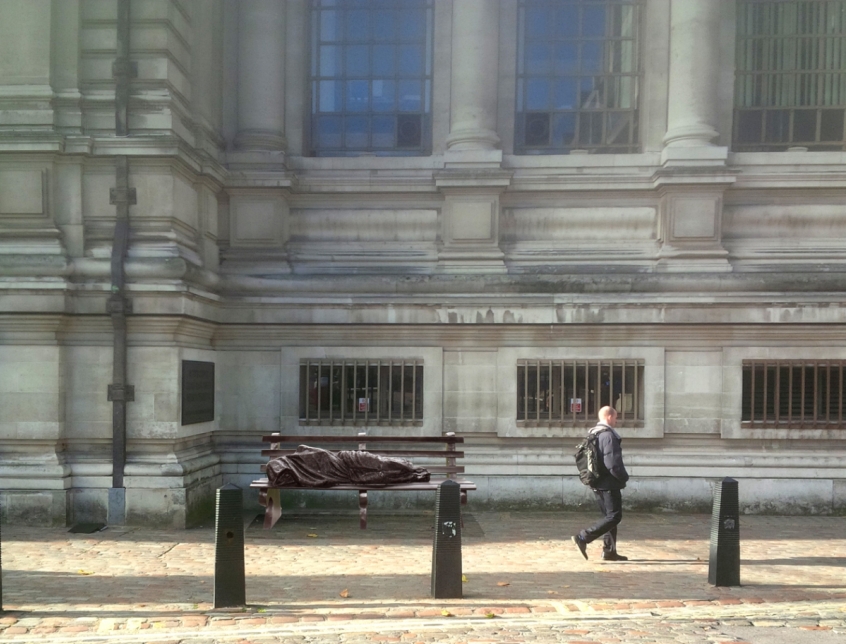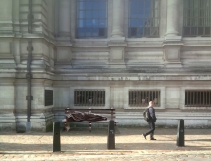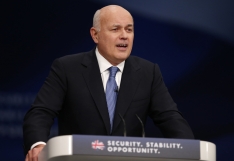
Permission to erect a sculpture depicting Jesus as a homeless man outside one of Westminster's iconic churches has been refused by the city council.
Methodist Central Hall Westminster (MCHW), which stands next to Westminster Abbey, agreed to take the bronze sculpture of 'The Homeless Jesus' by internationally renowned sculpture Timothy Schmalz after it was controversially rejected by St Martin-in-the-Fields church in Trafalgar Square.
However, MCHW's application, which received several hundred on-line endorsements on the Development Planning website from people all over the country, was refused because "the proposed sculpture would fail to maintain or improve the character or appearance of the... Parliament Square Conservation Area" owing to "its location within the City Council's Monument Saturation Zone".

The statue is of a life-sized figure sleeping on a park bench, covered with a blanket, his exposed feet bearing nail marks of crucifixion. Versions of the sculpture exist in Toronto, Washington DC, and Madrid, and the Vatican has given permission for a 'Homeless Jesus' statue to be erected there. It gained international fame in 2013 when Pope Francis blessed the model and stated that is was a "beautiful and excellent representation" of Jesus.
Rev Dr Martyn Atkins, Team Leader at MCHW, said: "Homelessness is increasingly a global issue, and we are witnessing what many say is the largest ever migration of people in Europe and North Africa. London is a leading world city and the positive symbolic effect of placing 'The Homeless Jesus' here in Westminster would be enormous.
"As a church we are extremely disappointed at the refusal of this application. We're led to the unfortunate conclusion that a sculpture of Jesus, depicted as homeless, isn't welcome in Westminster and so close to the Houses of Parliament. I imagine many people will find the Council suggestion that this particular piece of public art would somehow lower the tone of the neighbourhood insulting and ironic."
Atkins referred to a forthcoming Good Friday ecumenical march of witness through Westminster, noting that the wooden cross at the head of the procession would be carried by representatives of a homeless charity.
"In the context of the refusal of our application the irony is inescapable," he said.
He added that the church was considering appealing the refusal. "Our hope would be that the Council will take our views into consideration and overturn their decision," he said.
He invited supporters to sign an online petition.
A Westminster City Council spokesperson said: "We welcome public art and sculptures in Westminster. However, there are traditionally a large number of applications for monuments and memorials in Parliament Square and the surrounding area and it reached saturation point some years ago when the council introduced a policy of no further statues being allowed in this area. The council feels that in respect of this application an exception is not warranted. The applicants have been consistently advised that the statue needs to be located elsewhere.
"For example, there is no objection whatsoever to the sculpture being located within the Methodist Central Hall itself."

















